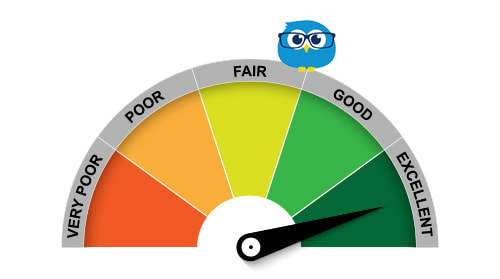The U.S. credit system can often feel rigged. Seemingly responsible behaviors like paying in cash and avoiding too many credit cards can end up working against you.
And as if the whole concept of credit wasn’t confusing enough, there’s a ton of misinformation out there that causes people to harm their credit when they think they’re playing according to the rules.
Let’s bust the most common credit myths once and for all so you can finally get the good credit you deserve.
Myth 1: You should stay away from credit ― period.
Truth: Some monetary specialists, as Dave Ramsey, say you ought to never assume obligation. The musing is that such a large number of individuals battle with obligation and the danger of getting cash basically isn’t awesome. However, in the present credit-driven world, staying away from Visas or different sorts of obligation makes achieving other monetary objectives unbelievably troublesome.
The individuals who try not to utilize credit are in danger of never fostering a solid record, as per Eszylfie Taylor, leader of Taylor Insurance and Financial Services in Pasadena, California. “This might introduce difficulties when a shopper hopes to make bigger buys like a vehicle or home, as they have not shown the capacity to get cash and reimburse obligations,” Taylor said.
Be that as it may, regardless of whether you don’t anticipate acquiring cash for a significant buy, you can in any case run into inconvenience when leasing a condo, opening another utility record or in any event, finding a new line of work in the event that you don’t have a set up record of loan repayment.
You don’t need to place yourself in the red to assemble great credit. Be that as it may, you do have to have some dog in the fight.
“The straightforward truth is that shoppers should hope to set up different credit extensions and make installments reliably to develop their financial assessments,” said Taylor.
Myth 2: Closing credit cards will raise your credit score.
Truth: If you paid off a credit card and don’t plan on using it again, closing the account can feel like the responsible thing to do. Unfortunately, by closing it, you can inadvertently harm your credit score.
According to Roslyn Lash, a financial counselor and the author of The 7 Fruits of Budgeting, this has to do with your credit utilization ratio. This ratio represents how much of your total available credit you’re actually using ― the lower your utilization, the better your score.
If you close a credit card, your available credit immediately drops.
“If you have less credit but the same amount of debt, it could actually hurt your score,” Lash explained. In most cases, it’s better to cut up the card but keep the account open. Setting up account alerts can help you keep tabs on any activity or fraudulent charges.
Myth 3: Checking your own credit hurts your score.
Truth: Certain sorts of credit checks can have a transitory adverse consequence on your FICO rating ― however checking your own credit isn’t one of them.
Checking your own credit results in a “delicate” request, which doesn’t influence your score, as per Adrian Nazari, CEO and originator of free FICO rating site Credit Sesame. Different kinds of delicate requests incorporate when you’re pre-supported for a charge card via the post office or a planned manager runs an acknowledge check as a component of the recruiting system.
You can check your FICO rating as regularly as you need with no outcome. Indeed, you should check it routinely; an abrupt plunge could show an issue or conceivable extortion.
Destinations, for example, Credit Sesame and Credit Karma permit you to see your VantageScore 3.0 for nothing, however you should realize this is typically not the score that banks audit. The most generally utilized score is your FICO score. Furthermore, however there are administrations that charge a month to month expense to access your FICO, you can frequently see it for nothing in the event that you have a Mastercard with a significant guarantor like Chase.
Myth 4: Making more money will increase your score.
Truth: When you apply for a credit card or loan, the lender will often consider your income when deciding whether or not you’re approved. But that factor is independent of your credit score, which they’ll also consider.
It seems to make sense that the more you earn, the easier it should be for you to pay your debts, but “your income has nothing to do with your score,” Lash said. So feel free to celebrate that next raise, but know that your credit score will remain the same.
Myth 5: Credit reports and scores are the same things.
Truth: Though it addresses similar sorts of data, your credit report isn’t equivalent shockingly score.
Think about an acknowledge report as your monetary report card and your FICO assessment as the general grade.
“Your credit report is a record of your credit accounts … [including] your recognizing data, a rundown of your credit accounts, any assortment accounts you have, openly available reports like liquidations and liens and any requests that have been made into your credit,” said Nazari.
Then again, your FICO assessment is a three-digit number that addresses that you are so liable to reimburse your obligations dependent on the data contained in the report. Your score “depends on a mind boggling calculation that assesses your relationship with credit after some time,” clarified Nazari. “Your financial assessment is excluded from your credit report.”
Myth 6: Once delinquent accounts are paid off, your slate is wiped clean.
Truth: Paying off past due accounts will get the debt collectors off your back. But when it comes to your credit, the damage can last years after you’ve made good.
“Your credit report shows positive and negative accounts, including collection accounts, discharges, late payments and bankruptcies ― some of which can be on your report for up to 10 years,” explained Nazari.
“All things considered, some assortment offices transparently promote that they will quit announcing an assortment account whenever it’s paid off,” he added. In case that is the situation, watch out for your credit reports to ensure the delinquent record is taken out. As a rule, be that as it may, you’ll need to live with the imprint until it terminates. Luckily, its effect on your FICO rating should diminish with time, contingent upon the sort of obligation.
Myth 7: You can max out your cards as long as you pay the balance every month.
Truth: Paying your bill in full each month is the way to keeping away from interest and building a strong installment history. However, who realized that piling up an equilibrium midmonth could hurt you?
That is on the grounds that the date that Visa backers report your equilibrium to the credit authorities is regularly not a similar date as your installment due date.
“For a superior FICO rating, hold your equilibrium under 30% of your card’s all out limit,” suggested Nazari. So if your card has a restriction of $1,000, you ought to try not to convey a surplus of more than $300 whenever.
In any case, assuming you need to have the option to utilize a greater amount of your accessible credit, you can square away your equilibrium before it gets answered to the authorities. Generally, said Nazari, it’s equivalent to the assertion shutting date, yet you should check with your card guarantor certainly.
Myth 8: You need a credit repair company to fix your bad credit.
Truth: Poor credit can feel like an emergency, especially if it’s preventing you from borrowing money you need. Credit repair companies bank on that sense of urgency, literally. And though there are a lot of shady credit repair agencies out there, the truth is that even the legitimate ones rarely do anything for you that you can’t do yourself.
“The good news is that one’s credit is ever changing and can be repaired if there have been some missteps in the past,” Taylor said. “In time, issues from the past will pass and credit can be restored … no matter how bad it is today.”








49 thoughts on “Want Good Credit? Stop Believing These 8 Harmful Myths”
Comments are closed.